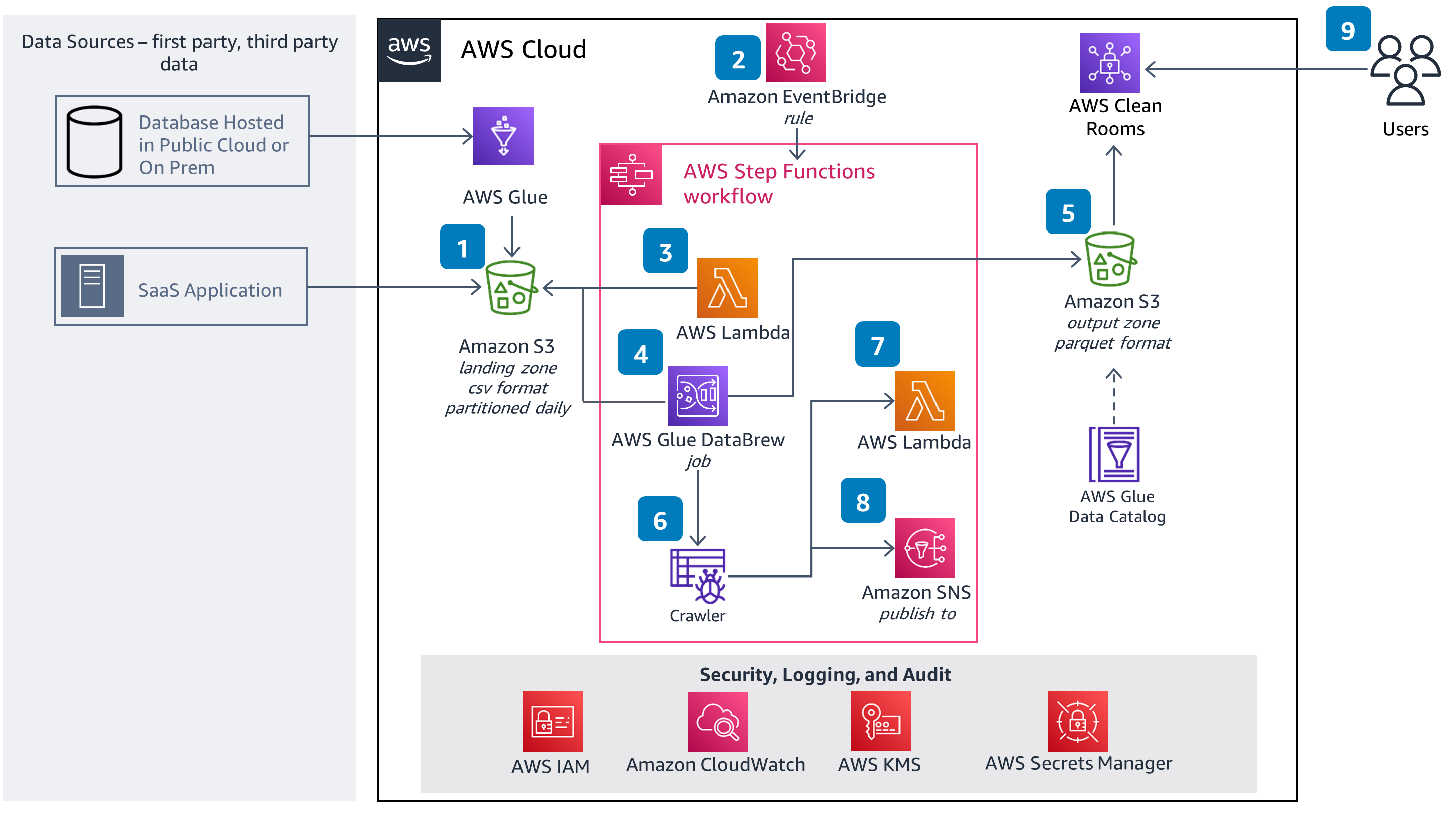Guidance for Connecting Data to AWS Clean Rooms
Summary: This Guidance helps advertisers, publishers, and data providers in the advertising and marketing industry provision data for an AWS Clean Rooms collaboration.
This Guidance helps advertisers, publishers, and data providers in the advertising and marketing industry provision data for an AWS Clean Rooms collaboration. Data Connectors capture best practices for connecting to specific types of data sources, landing data in AWS, transforming, and making data available for a data collaboration.
Reference Architecture for Data Connector
This reference architecture provides an efficient way to ingest and package data for AWS Clean Rooms data collaboration.

Figure 1 - Diagram of AWS Clean Rooms data connectors
Implementation Examples for common sources of advertising and marketing data
Salesforce Marketing Cloud
Salesforce Marketing Cloud provides a native integration to Amazon Simple Storage Service (Amazon S3). Data stored in custom objects can be exported to Amazon S3 using Automation Studio.
Adobe Experience Platform
Adobe Experience Platform provides a native integration to Amazon S3 service. Data stored in custom objects can be exported to Amazon S3 using Automation Studio. Refer to this guidance for provisioning data stored in Adobe Experience Platform for AWS Clean Rooms data collaboration.
Google Cloud Platform
Data stored Google Big Query can be ingested in to Amazon S3 using AWS Glue service. Refer to this guidance for provisioning data stored in Google Analytics for AWS Clean Rooms data collaboration.
Further Strategies to consider for data ingestion
The processing steps in the data connector can be broadly divided into two phases:
Data ingestion
Data preparation/transformation
The data ingestion strategy varies widely given the broad list of data sources and their integration capabilities. These data sources are divided into 5 categories based on their deployment architecture, including:
Third Party SaaS solutions: Salesforce Marketing Cloud, Adobe Experience Platform exposing an HTTP API
Third Party SaaS solutions: Salesforce Marketing Cloud, Adobe Experience Platform having capabilities to export data in to Amazon S3 directly
Relational Data stores hosted in public cloud: Google Cloud Platform (Google file storage, Google Big Query)
Data made available in file format on an SFTP server
Data made available in a public cloud object storage (Azure, Google)
This reference architecture captures the AWS services to consider for each category of the data sources.
.png)
Figure 3 - Diagram of AWS services for consideration when building with this Guidance
Once data is ingested into Amazon S3, a common pattern displayed in the aforementioned reference architecture can be used to transform and package data for AWS Clean Rooms data collaboration.